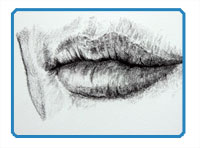
By Matt Fussell
Drawing a mouth is not hard to do. Just like any other type of drawing, it is mostly about observation. Because mouths can tell us a lot about the mood and expression in a work of art, it is important for us to be able to render them accurately. Although you should never use a standard formula when you draw anything, there is an order of drawing that you can follow that will help you draw mouths more accurately.
Draw the line that indicates where the top lip and bottom lip meet first. Too many people try to draw the entire outline of the lips first. Doing that usually leads to proportion issues and mistakes.
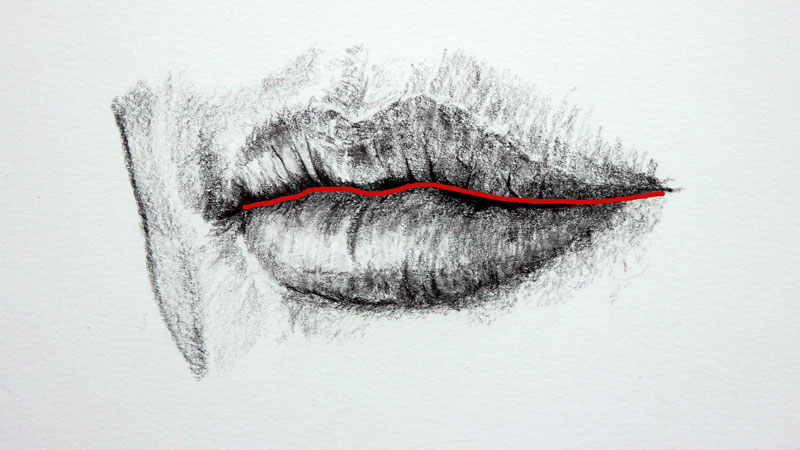
Next, we'll look at the outlines of the lips themselves, working outward from the defined center line. These lines will become guidelines that we'll use to fill in the values.
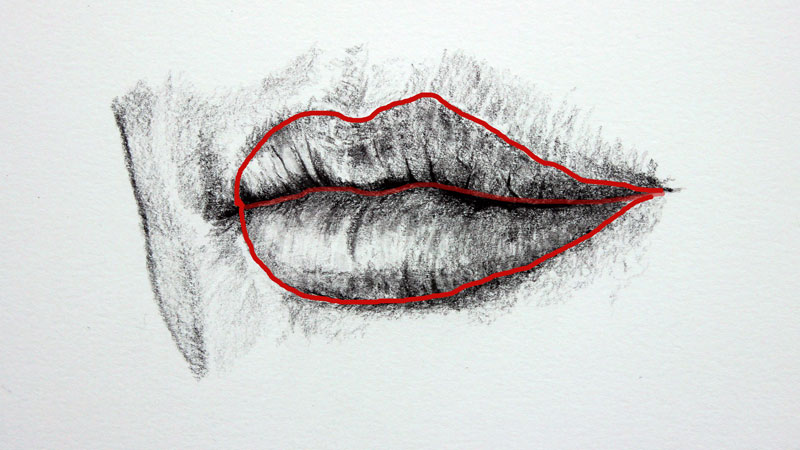
Now we'll consider the cross contour lines that, for most lips, are clearly visible. These lines wrap around the form of the lips.
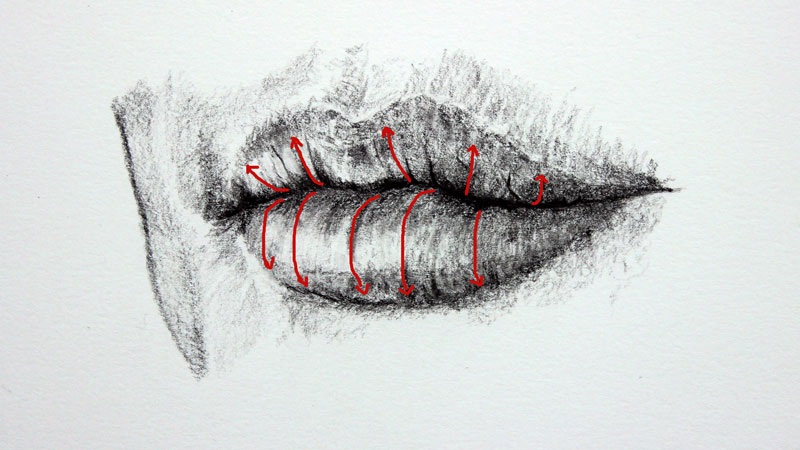
Next, we'll consider the light source. In this example, the light is originating from the upper left corner. This means that the lighter values will be on the left, with darker values on the right. The upper lip is generally darker in overall value, while the bottom lip is lighter. The locations of the darkest value are highlighted below...
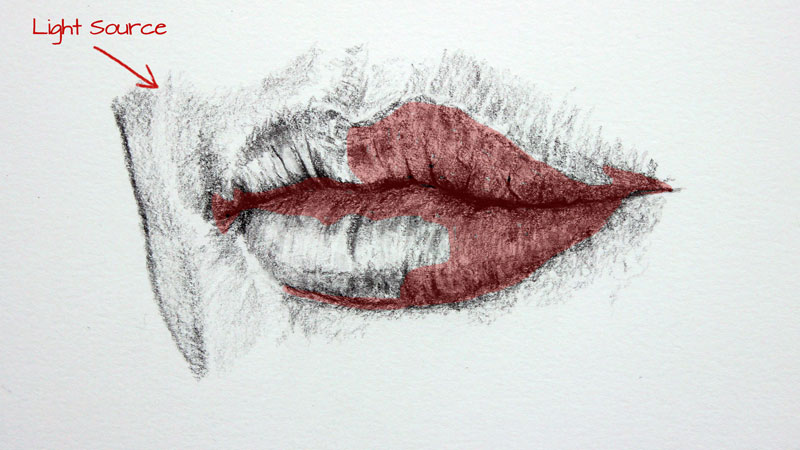
There are a couple of proportional tricks to drawing mouths. The pupils of the eyes mostly line up with the corners of the mouth. (Remember, this is only an estimate.) Most of the time, the bottom lip will be thicker than the top lip. And since most light sources will originate from above, this results in the top lip being darker in value.
In the tutorials on this page, I am drawing with graphite. If you would like to see a demonstration in color pastels, try here. The following video is a bit old, but still helpful, especially if you are drawing a mouth without a photo reference...
To help you draw a mouth more effectively, it may be a good idea to think about the mouth in terms of planes. If you break the mouth and lips into simple planes, it will help you get correct proportions on your paper.
Take the mouth in this drawing for example...
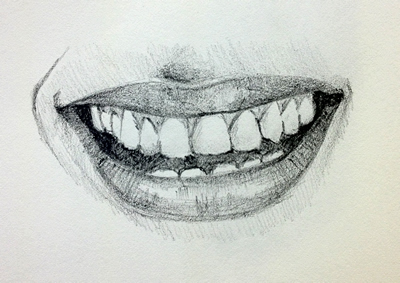
When the lips are simplified with planes, the drawing is easier to piece together...
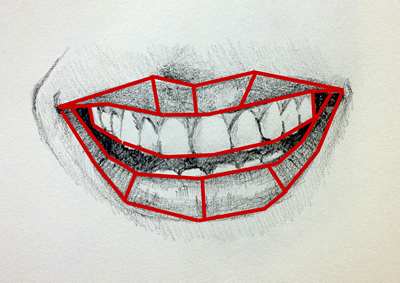
Here is another example. In this case, the face is at a 3/4 view. The planes are still evident. Pay close attention to how the lines follow the cross contours of the mouth...
The drawing of the mouth without the planes...
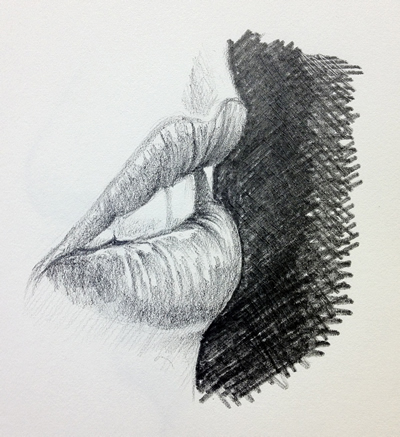
Here is the same drawing with indicated planes and cross contours...
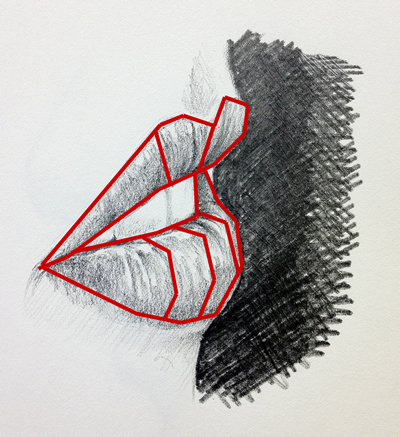
When you are drawing a mouth from the side view, be sure to consider the slant that usually happens from the nose to the chin. The top lip sticks out further than the bottom lip...
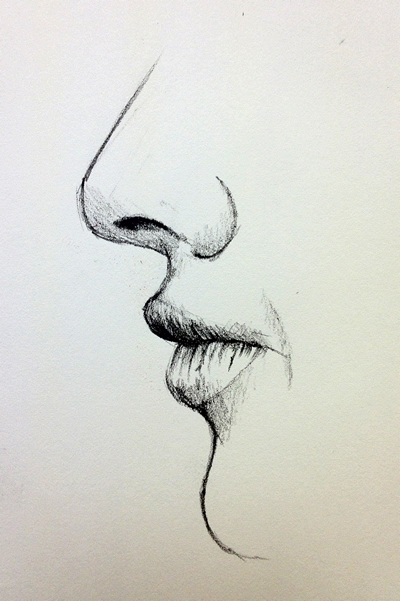
Here with the slant labeled along with the planes...
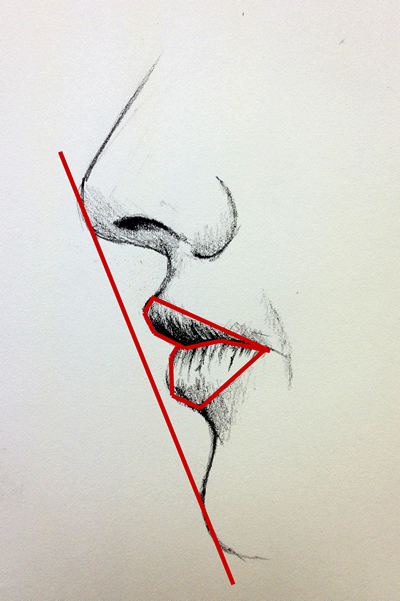
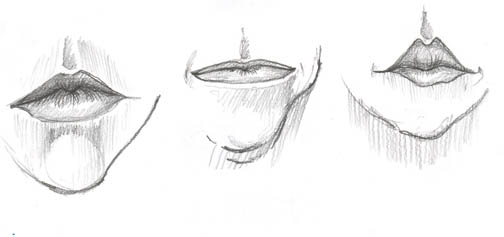
Here are some more art lessons that you may like...